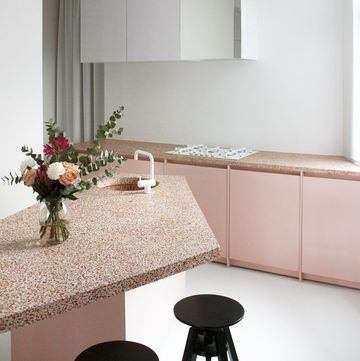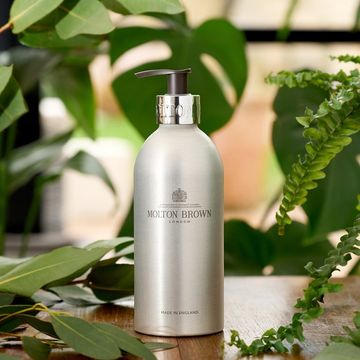As a designer operating in an age of mass consumption and production, how can you responsibly keep putting new things out into the world? It’s a conundrum that every environmentally conscious creator faces.
Cornish-born designer-maker Max Lamb has been confronting this question head-on since launching his studio in 2007, with projects such as ‘Box’ – 33 pieces of furniture made entirely from discarded cardboard collected in his studio. It’s an approach no doubt drilled into him in his early days working under Tom Dixon, who famously once declared that ‘we have too much stuff now’.
This summer, Lamb interrogates this idea further with ‘Wasted’, a homeware and furniture collection made in collaboration with artisans in Bali for Indonesian resort Desa Potato Head, crafted entirely from the hotel’s waste. Opened in 2020, the unique complex was founded by Indonesian entrepreneur Ronald Akili with the vision to become a zero-waste ‘creative village’.
What's everyone reading?
‘Waste is being generated constantly, and there is a real opportunity to address that and to try and turn it into as much of a positive as possible,’ explains Lamb, who we met at his workshop in leafy Harrow-on- the-Hill. Desa Potato Head has now ensured just 2.5 per cent of its waste reaches landfill.
The collection has been in development since 2019 when, ahead of the hotel’s launch, Lamb was tasked with creating products for its bedrooms and studio suites. ‘I’d never been to Bali before, so I didn’t know the island, the culture or the opportunities that lay in front of me,’ he recalls. ‘I like to work within localities and survey material, manufacturing and production possibilities to let that inform the design process. So I was like, “I’m not designing anything until I come,”’ he adds, grinning broadly.
The 44-year-old spent a couple of weeks going behind the scenes to see the hotel’s waste streams and tour the island. He became enamoured with the way people were honing their craft: ‘As we were driving around the island, I’d see people blowing glass on the roadside. The product started to evolve from that exploration, with designs informed by introductions to those makers.’
‘Wasted’ was born out of the realisation that the products he designed for the suites had the potential to be recreated as retail versions. Tableware, glassware, bathroom accessories, textiles (relatively new territory for Lamb) and chairs (the furniture for which he is best known) are now all part of the offering and can be purchased in the hotel’s shop.
Everything is made by hand from surplus material sorted by Desa Potato Head. Used bedsheets have been converted into brightly coloured tie-dye bags and pouches in a range called ‘Compost Dye’, and plastic containers and bottles have been transformed into a family of accessories in partnership with Bali-based recycled-plastic company Robries. Meanwhile, broken bottles are reimagined as coloured dishes by local studio Cahaya Lestari Glass, and cooking oil is transformed into candle wax.
As usual, the designer took a ‘hands-on’ approach to the project, splitting his time between prototyping in his London studio, revisiting artisans in Bali and regular calls with Potato Head’s design team. ‘It’s been a very intentional vision from a young age that I cannot be a good designer if I’m not a good maker,’ explains Lamb, who has experimented with dyeing his own sheets and his family’s socks, purchased a sewing machine to practise embroidery and even created numerous cups out of polymorph (a moldable plastic) to create model glasses.
Desa Potato Head’s first product offering was never going to be the branded baseball caps or slogan tees that you might find at other luxury hotels. By contrast, Lamb hopes that it will become ‘a blueprint for the alternative to that type of merchandise’, maxlamb.org; seminyak.potatohead.co.
















